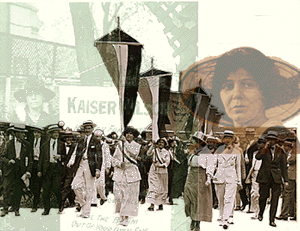
In the early 1970s the Suffragists Oral History Project, under the auspices of the Bancroft Library's Regional Oral History Office, collected interviews with twelve leaders and participants in the woman's suffrage movement. Tape-recorded and transcribed oral histories preserved the memories of these remarkable women, documenting formative experiences, activities to win the right to vote for women, and careers as leaders of the movements for welfare and labor reform, world peace, and the passage of the Equal Rights Amendment.
A biography of Alice Paul based upon Amelia Fry's oral history interviews with Alice Paul, her friends, and relatives is now available: Alice Paul: Claiming Power by J.D. Zahniser and Amelia R. Fry.
Seven major figures in twentieth-century suffragist history are represented here with full-length oral histories. These include Alice Paul, founder and leader of the more militant organization called the National Woman's Party, which made suffrage a mainstream issue through public demonstrations and protests; Sara Bard Field, a mother, lover, poet, and social and political reformer, whose interactions with California artists and political activists gave her a national profile; Burnita Shelton Matthews, a District of Columbia federal judge; Helen Valeska Bary, who campaigned for woman's suffrage in Los Angeles and later had a prominent career in labor and social security administration; Jeannette Rankin, a Montana suffrage campaigner and the first woman elected to Congress, who recalls Carrie Chapman Catt, the League of Women Voters, and her lifelong work for world peace; Mabel Vernon, who is credited for the advance work of gathering the throngs of people to greet Alice Paul and her entourage on their famous coast-to-coast suffrage campaign in the fall of 1915; and Rebecca Hourwich Reyher, who gives an account of working with Alice Paul in organizing the Woman's Party.